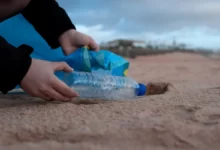In an era where environmental consciousness is becoming more critical than ever, making eco-friendly lifestyle swaps is a powerful way to contribute towards a sustainable future. Every small change we make in our daily routines can have a significant impact on reducing our carbon footprint and preserving the planet for generations to come. In this blog post, we’ll explore 10 eco-friendly lifestyle swaps that you can easily incorporate into your daily routine.
1. Reusable Water Bottles and Containers
Plastic pollution is a global crisis, and single-use plastic bottles are a significant contributor. By switching to reusable water bottles and containers, you can make a substantial difference. These alternatives are not only environmentally friendly but also healthier for you, as they often eliminate the risk of chemicals leaching into your drinks or food.
Consider investing in stainless steel water bottles, which are durable, easy to clean, and keep your beverages at the desired temperature. Glass containers are also an excellent option for storing food and beverages, as they don’t retain flavors or odors like plastic does. By simply refilling your reusable water bottle and carrying your lunch in a reusable container, you can significantly reduce your plastic waste.
2. Cloth Shopping Bags
Plastic bags are a common sight in our environment, from littering streets to polluting oceans. To combat this issue, opt for reusable cloth shopping bags. These bags are not only sturdy and reliable but also customizable, allowing you to choose designs that reflect your personal style and values. By using cloth bags, you’re taking a stand against plastic pollution and encouraging others to do the same.
3. Meatless Mondays and Plant-Based Eating
The environmental impact of the meat and dairy industry is undeniable. Livestock farming contributes to deforestation, water scarcity, and greenhouse gas emissions. By participating in “Meatless Mondays” or incorporating more plant-based meals into your diet, you can significantly reduce your carbon footprint. Plant-based foods require fewer resources to produce and have been shown to have numerous health benefits, making it a win-win choice for you and the planet.
4. Energy-Efficient Appliances and Light Bulbs
Energy-efficient appliances and LED light bulbs are investments that pay off in the long run. While they may cost slightly more upfront, they consume significantly less energy, which not only reduces your utility bills but also helps mitigate climate change. Energy-efficient appliances are designed to perform the same tasks while using fewer resources, making them a practical choice for both your wallet and the environment.
5. Carpooling and Public Transportation
Traffic congestion and air pollution are interconnected problems that can be alleviated through carpooling and public transportation. By sharing rides with others or opting for buses, trains, or subways, you’re contributing to reduced traffic on the roads and decreased emissions. Public transportation is a more sustainable way to travel, and carpooling fosters a sense of community while reducing individual carbon footprints.
6. Composting and Food Waste Reduction
Food waste is a significant contributor to environmental issues, and composting offers a solution. Instead of sending organic waste to landfills, where it produces methane gas, composting turns it into nutrient-rich soil that can be used to support plant growth. Additionally, being mindful of your food consumption and planning meals can help minimize waste in the first place, benefiting both the environment and your wallet.
7. Reusable Coffee Cups and Utensils
Disposable coffee cups and plastic utensils create tons of waste annually. By investing in a reusable coffee cup, you not only reduce waste but often enjoy discounts at cafes. Carrying your own utensils, such as a reusable fork, knife, and spoon, eliminates the need for single-use plastic cutlery. These small actions showcase your commitment to sustainability and inspire others to make similar choices.
8. DIY Cleaning Products
Commercial cleaning products often contain harsh chemicals that are detrimental to both the environment and your health. Making your own cleaning solutions using natural ingredients like vinegar, baking soda, and essential oils not only reduces your exposure to toxins but also minimizes plastic packaging waste. These homemade alternatives are effective and safe, creating a healthier living space while contributing to a healthier planet.
9. Cloth Napkins and Handkerchiefs
The production and disposal of paper napkins and tissues contribute to deforestation and waste. Switching to cloth napkins for meals and carrying a handkerchief can significantly reduce your consumption of disposable paper products. Cloth napkins add a touch of elegance to your dining experience, and using a handkerchief is not only environmentally friendly but also a stylish accessory.
10. Secondhand Shopping and Clothing Swaps
The fashion industry’s impact on the environment is undeniable, from resource consumption to textile waste. Embrace secondhand shopping as a way to reduce your contribution to these issues. Thrift stores and consignment shops offer unique pieces that allow you to express your style sustainably. Participating in clothing swaps with friends or local communities extends the lifespan of clothing items and promotes the concept of a circular fashion economy.
Conclusion
Making eco-friendly lifestyle swaps is a tangible and impactful way to contribute to a greener future. By incorporating these 10 changes into your daily routine, you’re not only reducing your environmental footprint but also setting an example for others to follow. Every conscious decision you make, from using reusable products to adopting plant-based eating, has a ripple effect that collectively creates positive change. Remember that a sustainable lifestyle is a journey, and each small step you take brings us closer to a more harmonious relationship with our planet.









